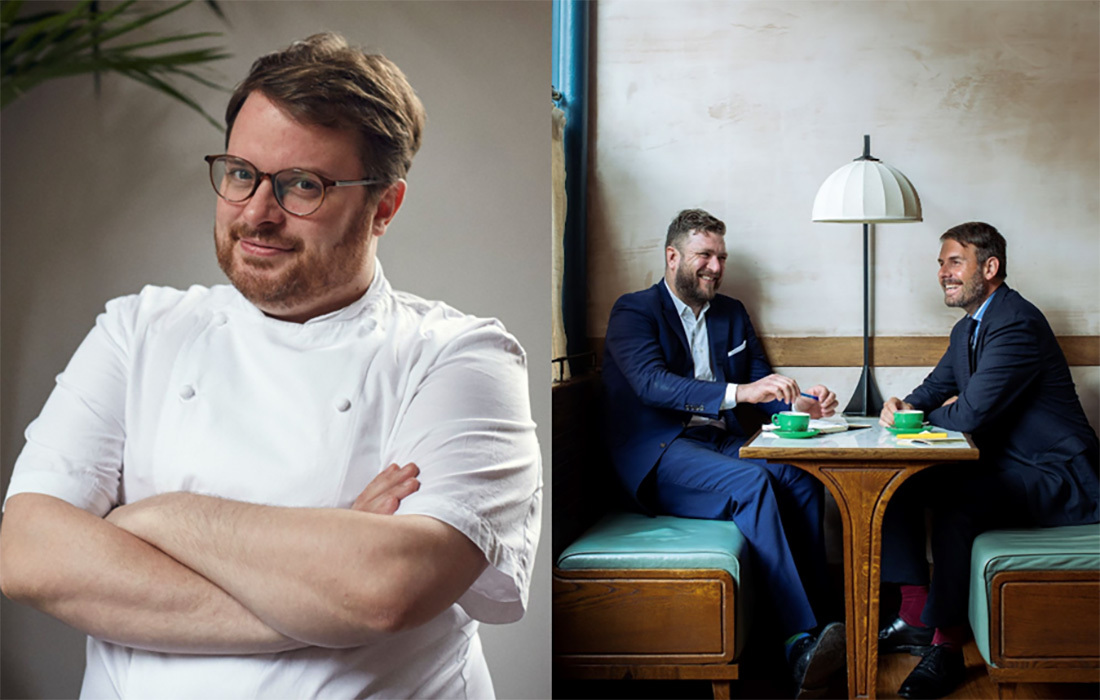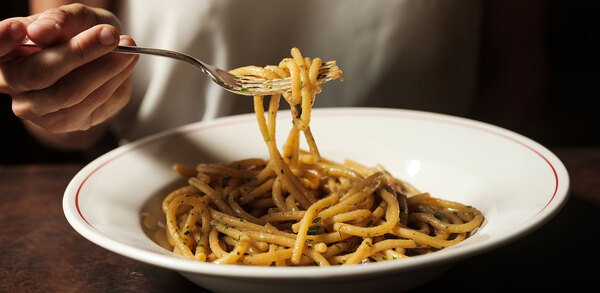Education for the nation: training experts on building a workforce for the future
A group of hospitality education specialists gathered to discuss how best to attract new recruits into the industry and maintain training and engagement for a future workforce. Lisa Jenkins reports.
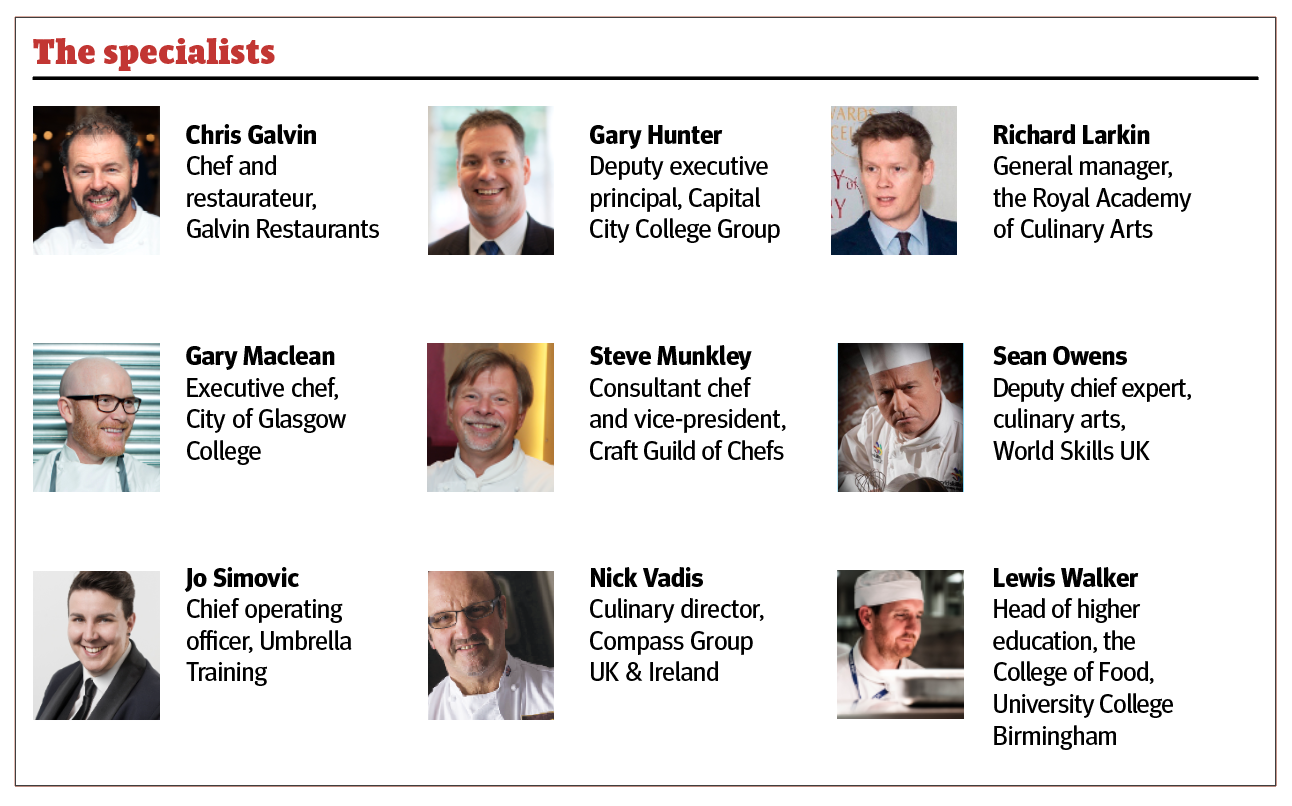
Inspiration and motivation
Jo Simovic (JS): Learning is expected in multiple streams, including what has become known as ‘just-in-time’ learning: mobile content, Instagram, TikTok, micro-learning, video content, technical education, user-generated content, and increasingly, augmented reality. Peer-to-peer learning, such as virtual demonstrations, has become increasingly important.
Lewis Walker (LW): Students want the ability to learn in their own time, at varying times of the day, and are digitally driven. They are inspired by success and relatable inspiration.
Gary Maclean (GM): I believe students of any age want consistency. We’ve also put talented, inspirational people in front of our students and have continued to teach them at the highest level.
Nick Vadis (NV): We’ve set up lots of virtual guest chef demos; it really helpts if apprentices and students can listen to them first-hand.
Gary Hunter (GH): Adult students and those in second and third careers learn completely differently, so we must be flexible and responsive.
Richard Larkin (RL): The Royal Academy of Culinary Arts (RACA) has also organised virtual events, and a series of videos with inspirational RACA members, such as Sergio Rebecchi, Silvano Giraldin, Dimitri Bellos, and chefs Ruth Hansom and James Golding, talking about their careers.
Mentoring the next generation of chefs
GH: We believe that the best way to support an apprentice is to match them with an employer mentor who will stay with them for their entire apprenticeship journey (front and back of house) – someone to “hold their hand” – and if possible, their entire career. It doesn’t have to be their immediate line manager. Sometimes it’s the extended learning that is missing – and that will be especially true post-Covid.
The best way to support an apprentice is to match them with an employer mentor who will stay with them for their entire apprenticeship journey
Chris Galvin (CG): I agree with Gary. We launched a mentoring drive through the Craft Guild of Chefs but had a disappointing response. Everyone needs an unbiased mentor who will care for them as they grow. There are enough of us out there and we need to make a huge change in our leadership practices. We must change how we work as employers, and we still have a disappearing pool of talent.
NV: All our apprentices have a mentor at Compass, and there is always someone to step in if that mentor is not available. Our apprentices are never left alone, and our culinary team have mentors, too. Our Apprentice Chef of the Year competition drives them too and allows feedback. It’s not just about winning – the competing motivates them and encourages others.
Steve Munkley (SM): Employers have a responsibility to look after their apprentices and workplace students, and, of course, their employees. Some lecturers would not send their students to certain businesses because some people just can’t mentor – and those that can’t mentor should get called out on it. We all know bullying still goes on and it is not acceptable. As Chris said, we did launch a Craft Guild of Chefs mentoring scheme; it would be great to get more momentum behind this.
JS: Mentoring is a crucial concept in an apprentice’s journey, and we expect chefs and managers to train mentors [with levy funding available for this very purpose]. Apprenticeships should be employer-led and a major learning trend for 2020 is that the onboarding process is key. Generation Z is all about individual experiences and it’s important to get the parents and guardians on board, too.
The competitions that count
CG: Competitions form a critical part of every chef’s learning and help to create friendships. Although I do think we need to remember that it can be more difficult for operators to put their staff forward for these now. Kitchens are so tight and making time for a member of the team to enter a competition is such a big commitment in terms of resources and the cost of competing. Post-Covid it will be even tighter. I fear for competitions, but I will never stop fighting for them and promoting them.
LW: Time, resources and money are tight, but we will continue to promote competitions – they are essential to learning. The curriculum will need to be prioritised to get funding and colleges will continue to rely on manufacturers and suppliers for commercial support to reinvest in the next generation of chefs – via competition support.
Time, resources and money are tight, but we will continue to promote competitions – they are essential to learning
Let’s focus less on the percentage of people that end up in fine dining. The industry is much bigger than that and craft skills are imperative. Being a chef is a trade: you need to know your tools, your ingredients. Learning these skills gives you pathways and directions, and there are so many different routes. Front of house is the same – you still need all the skills.
SM: The suppliers who support the competitions and colleges are incredibly supportive; relationships are forged through these partnerships. Respected competition ambassadors like Ruth Hansom and Adam Smith, who talk about their successful competition careers, are a real encouragement to others in the industry.
Which competitions are worth entering?
GM: The Young Chef Olympiad, which was updated last year and run virtually, is an exceptional example of a culinary competition.
CG: The Young Chef Olympiad is an excellent example with incredible standards in all countries; they overcame lots of technical issues this year and it stretches our boundaries.
NV: One of my favourite competitions is the Culinary Olympics and the organisers have worked hard to modernise it.
SM: This year’s Salon Culinaire (part of HRC) is virtual, giving everyone a chance to enter. We will give everyone who enters feedback as well – it lifts the spirits.
GM: World Skills is another crucial competition for developing young people – they work hard with the students on mindset and creating networks.
Sean Owens (SO): World Skills has been 100% remote-learning over the last 16 months and it’s still maintained its international high standards.
GH: Young Chef Young Waiter is a good example for me, with the cook and serve element bringing front and back of house together. Toque d’Or is one of the top three student competitions in my opinion. It continues to evolve and include new challenges with a strong emphasis on skills enhancement.
LW: We shouldn’t forget the sector-specific competitions: Young Seafood Chef of the Year, run by Seafish, the skills tests at Salon Culinaire and, of course, Zest Quest Asia. It’s so experiential – and what a prize! [a culinary study tour to an Asian destination]
Other competitions highlighted included: RACA’s Awards of Excellence; Bocuse d’Or; the Roux Scholarship; Young National Chef of the Year; and Skills for Chefs.
Driving diversity
CG: I think diversity in hospitality has improved, although we would still like to see more female and older applicants. We are particularly interested in autism recruitment and have successfully had staff with autism train for back of house roles. We should be seeing people with disabilities at events. Our young team members need to think about inclusivity, too.
SO: The Culinary Ability Awards do a great job of showcasing inclusivity in our industry.
LW: We’ve always had a very diverse student base – we should only ever be thinking about ability. There are lots of different levels of competitions, and we should have a mix of cultures and cuisines – but competitions are also about tenacity and self-management.
JS: From the perspective of an apprentice supplier, I do question how many competitions are easily accessible to apprentices. I’d also like competitions to be more diverse and inclusive, with workplace mentors and employers being more involved in the competitions. It would be great if we could get employers involved earlier on with mapped learning, including competitions.
In the industry generally, a recent PwC report showed there is a lack of diversity and representation at senior management level. There is much more that could be done in terms of employers’ goals in BAME and LGBTQ+ strategy. We all need to examine higher structures and take some positive action.
We all need to examine higher structures and take some positive action
SM: In terms of inclusion, we should be thinking about competitions that include people further on in their career or starting a second career in hospitality.
Front of house, front of mind
GM: We need to make a cultural change and present more role models in front of house: who are the heroes and superstars? We must talk about front of house opportunities more and how quickly and successfully you can progress through your career in these roles.
JS: Harry Murray is a superb front of house role model in my opinion, and our superhero webinar with him was fantastic. Kate Nicholls is a pillar of strength, too.
However, front of house does need more showcasing, and it goes way beyond F&B. We should be celebrating people working in accounting, maintenance, housekeeping and marketing.
One of the Gatsby benchmarks (see further reading) is linking curriculum to careers and as a country we need to be talking about a much wider range of potential roles in hospitality much earlier and strategically in schools and colleges.
CG: We used to respect front of house roles much more. I believe that back in 1975 when nouvelle cuisine came along, diners lost their connection with waiters – focus changed to the plate. It would be great if The Caterer and other respected institutions showed the way by showcasing the route to a successful front of house role, and not just F&B. Every ringmaster needs their understudy – so again it’s about training and mentoring.
David Morgan-Hewitt at the Goring once told me that having the right person front of house is the closest any of us will ever get to having our own servant, like in Downton Abbey!
SO: We must start the process through schools and reverse the perception that working front of house is subservient.
LW There are still lots of front of house elements up to bachelor’s degree level in hospitality management. The challenge, in my opinion, is at a higher level, and with existing government curriculums. We should be talking more about T-Levels, too (see below).
JS There is currently no T Level for hospitality – the earliest we will get one is 2023.
Apprenticeship levy transfer
A recent event organised by Umbrella Training to mark National Apprenticeship Week, including representatives from Sodexo, GlaxoSmithKline (GSK), Luxury Family Hotels, and the London Progression Collaboration (LPC), detailed how businesses can take advantage of the funding opportunities afforded by the apprenticeship levy, discussing the benefits to both transferers and transferees.
The UK government launched the levy in April 2017 for all employers paying a wage bill of over £3m per year. Eligible employers must pay 0.5% of their payroll each month as a levy tax, with this money used to support apprentices into the workplace.
A levy-paying employer can transfer 25% of their levy funds to another employer to be used to train an apprentice. Any unspent monies is returned to the Treasury.
The levy transfer scheme is designed to support SME businesses who are not paying the levy and do not have access to additional levy funding to help develop their teams.
T Levels
A T Level is split into three main sections: a technical qualification (TQ) is the main, classroom-based element. Students will learn about their chosen sector through a curriculum designed by employers and developed by an awarding organisation (AO).
English, maths and digital provisions are also built into this element, ensuring students have a solid foundation of transferable skills.
An industry placement, which runs for a minimum of 315 hours (45 days) overall, will give students practical insights into their sector and an opportunity to embed the knowledge and skills learned in the classroom.
A catering T Level will launch in 2023. There are ongoing consultations looking at the suitability of future T Levels in hospitality and the Institute of Apprenticeships is keen to hear views from the hospitality sector.
For more information, contact Employer.Panels@education.gov.uk or click here.
Viewpoint: Cyrus Todiwala
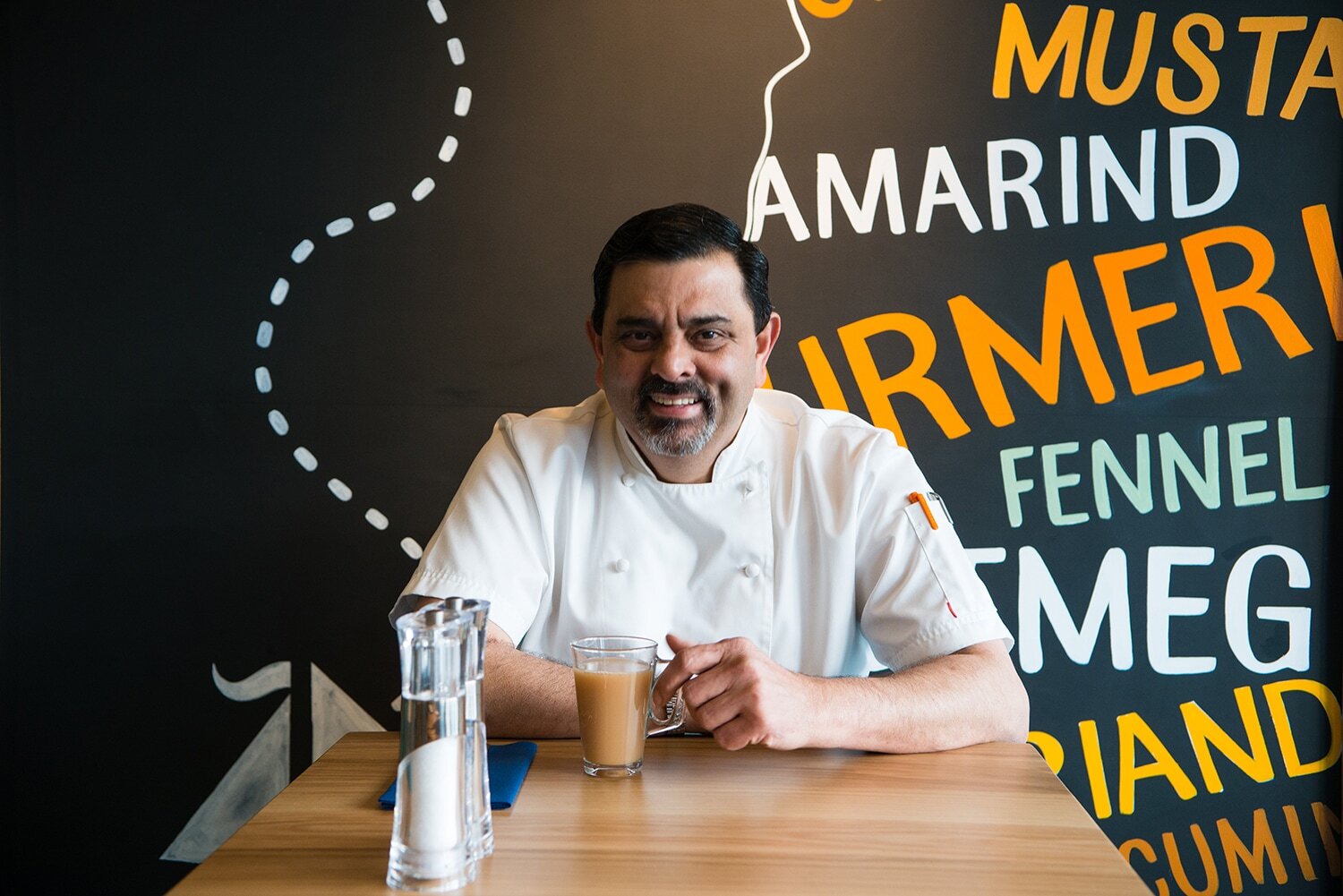
“In my opinion, mentoring anyone in any role must come from the top. Executive chefs, general managers and F&B directors all need to buy into mentoring. It should be done during working hours, to encourage more people to sign up to being a mentor without sacrificing too much of their own personal time.
“For us to keep people in this industry, we must be honest from the start about the negatives and the positives. There is alcoholism, drug abuse and late nights, but you also make life-long friends and get to work with your best buddies. Moaners have a way to change people’s perceptions and drag them down a negative route; we all have a responsibility to show there is a good balance, and that there is support if needed.
For us to keep people in this industry, we must be honest from the start about the negatives and the positives
“In terms of diversity in the industry – it’s a mixed bag. In my experience the mixed-race students you will see are probably foreign students here for education purposes only. Within Asian communities, for example, our profession is sometimes scorned, and because parental pressure is very high, you may not find many taking steps to join the industry. There is also a fear that if you are Asian, you can only work in an Asian workplace.”
Viewpoint: Yolande Stanley
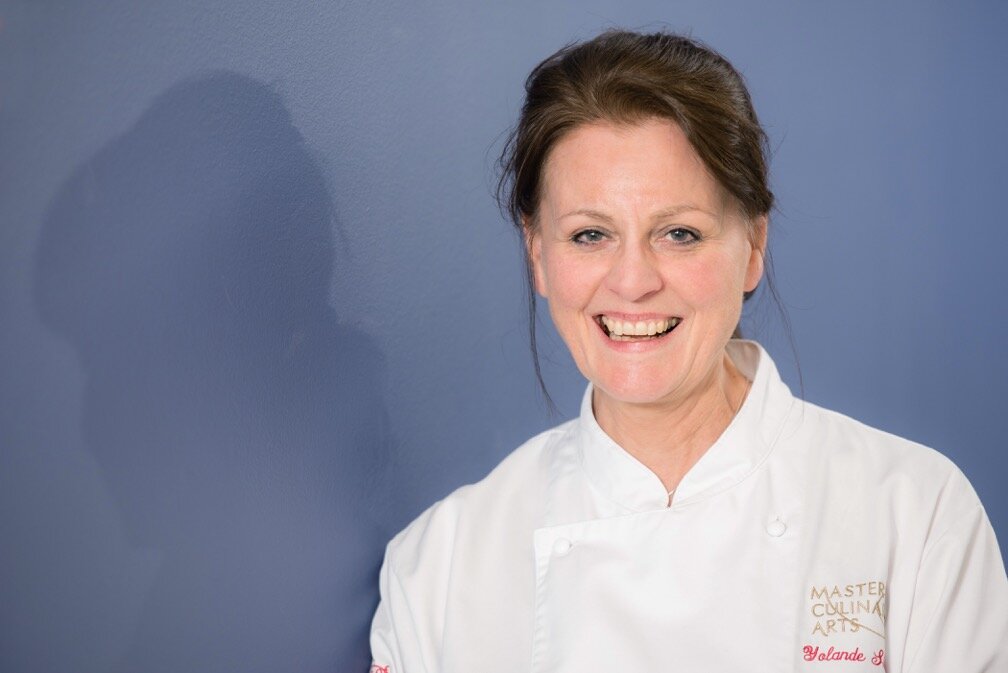
“In the pastry world, the competitions that are revered are the Master of Culinary Arts and the Awards of Excellence, both organised by RACA. The World Chocolate Masters and Junior Chocolate Masters UK, World Skills, National Chef of the Year, Toque d’Or, Roux Scholarship and the Craft Guild of Chefs Graduate Awards are also high up on the list. These competitions are a mix of contemporary and classical, some requiring entrants to work at a meticulous standard and work ethic.
“Young people embarking on the hospitality journey tend to be visual and auditory learners. Demonstrations and explanations should be concise but thorough and engaging – and tasting is always helpful.
“Students should be learning soft skills and life skills from school upwards. Colleges and workplaces should embed mental health awareness into the start of their courses and permanent positions. Awarding bodies should recognise this and include it in study areas of their qualifications. Young chefs in the industry can so easily become entrenched in the (sometimes unreasonable) expectations placed upon them. They must be taught to step back and acknowledge signs, as must employers.”




